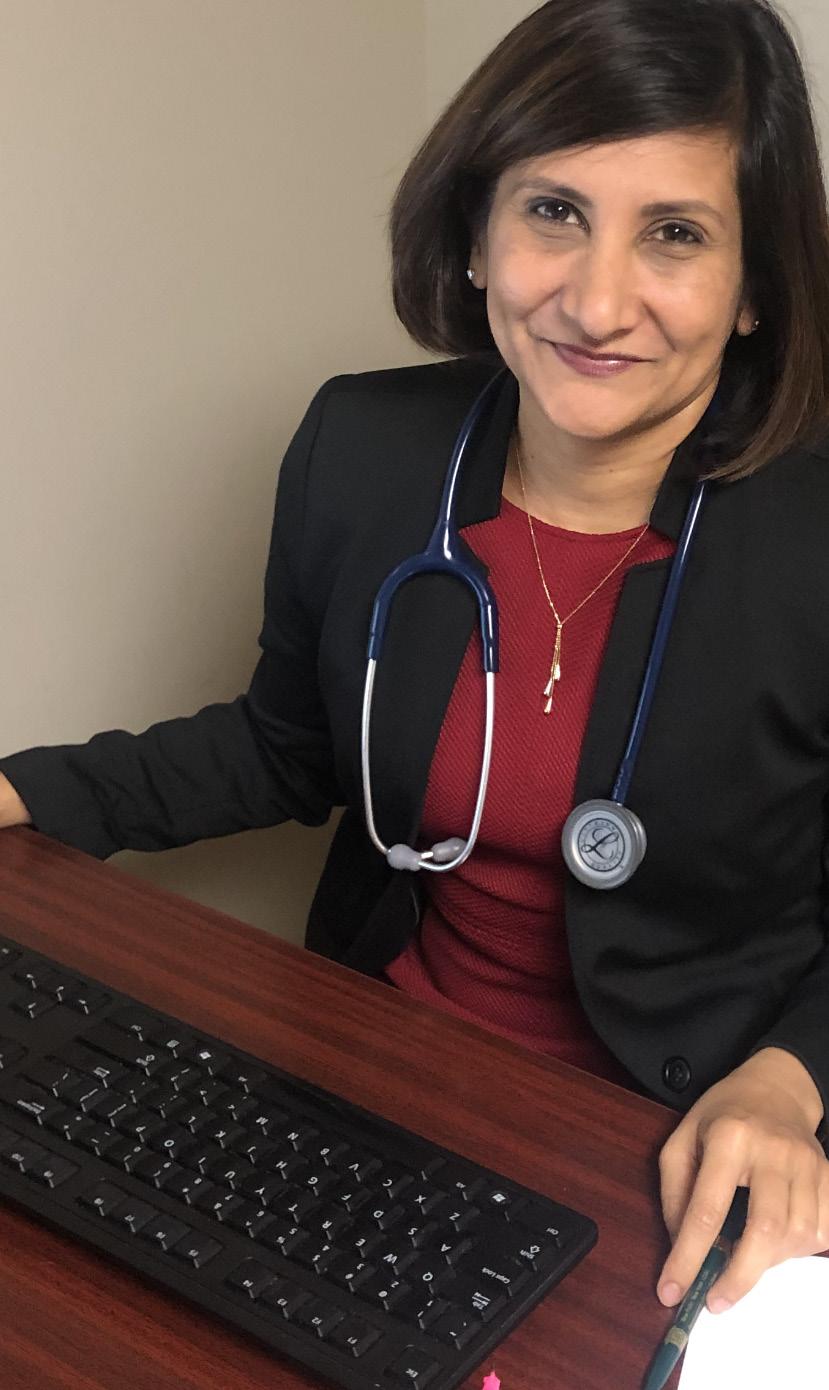
3 minute read
No Time for Goodbyes
Dr. Brinda Desiraju can never forget the harrowing early months of the pandemic
HEENA KAUSAR
Dr Brinda Desiraju, a nephrologist who practices at New York Presbyterian-Brooklyn Methodist Hospital
Afew months after the death of one of her patients, New York-based Dr. Brinda Desiraju received a call. She heard sobs followed by questions. The caller was the mother of the patient, who died after getting Covid-19. The mother wanted answers – and closure.
Desiraju, an Indian-American nephrologist, said she received more such calls from family members of patients, who sought details about the case and what had exactly transpired. Desiraju talked to them, to give them answers about the treatment, hear them cry, and try to comfort them.
“They had to hear it again to get closure. … They weren’t there to see what happened to their loved ones. They never got to see their loved ones when they were passing away,” she said.
Desiraju felt that the callers “needed some more empathy from the physician” and she was able to give that to some of them.
During the initial phase of the pandemic, when the cases were increasing at an alarming rate, hospitals had stopped Covid-19 patients from having visitors. This reduced the risk of spreading the virus but also meant that many patients died alone, without their families being able to meet them.
Desiraju, who practices at New York PresbyterianBrooklyn Methodist Hospital, was actively involved in treating Covid-19 patients.
“They all needed hands-on care for kidney failure, including dialysis,” she said. “We got overwhelmed with the number of kidney failure patients… At one point we had 400 Covid-19 patients. Between 170 to 180 of them were on ventilators on a given day, and a third of them were on dialysis.”
Desiraju was born in Mysore, India, where she graduated from JSS Medical College. She moved to the United States in 1999 to train in internal medicine and nephrology. She studied intervention nephrology at the University of Miami and before moving to New York.
Desiraju’s interest in medicine started when she heard her parents discuss science and research. Her mother, a microbiologist, worked with the Defence Food Research Laboratory where she developed space food. Her father, a biochemist, is the former director of the Central Food Technological Research Institute.
“Both my parents are scientists. We always talked about science at home. My parents were heavily involved in research and science. They inspired me,” Desiraju said.
But though she has been treating patients since 20062007, nothing prepared her for the initial months of the pandemic.
“Every single operating room in the hospital was converted into ICU. Every single space we could convert into an ICU, we did. There were ventilated patients just about anywhere you looked. It was like a war zone,” she said.
The hospital staff also faced critical shortages of masks, PPE kits, and other protective gear. Things only improved by mid-May, she said.
“To put it in simple words; it was a mess,” Desiraju said. “To put it in more dignified way, it was a very difficult learning curve.”
But keeping families apart was especially distressing
for the doctors.
“The most difficult part was to tell their beloved family members was that they are dying but, sorry, you cannot come in,” she said.
Desiraju said that doctors and nurses held iPads and phones next to the patient so that their family members could say their goodbyes. But it was done for a limited time of 7-10 minutes because there were many patients to attend to. “Those were heartbreaking moments for medicine,” she said.











